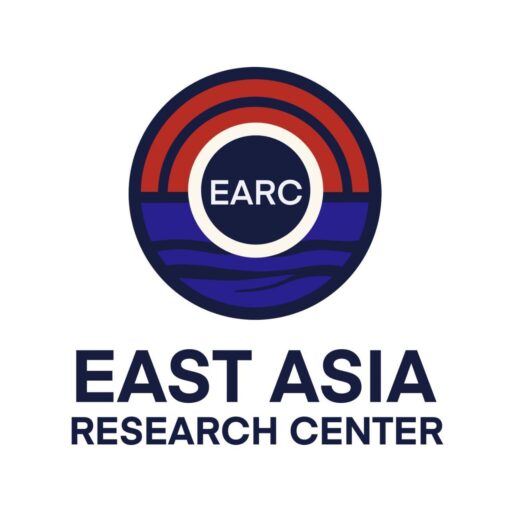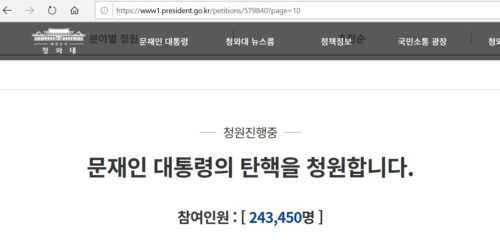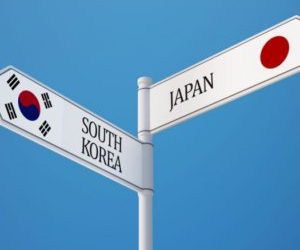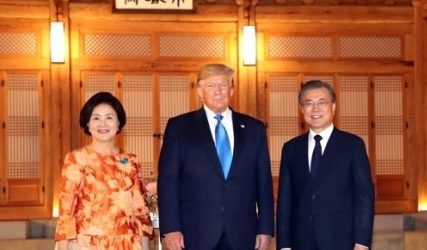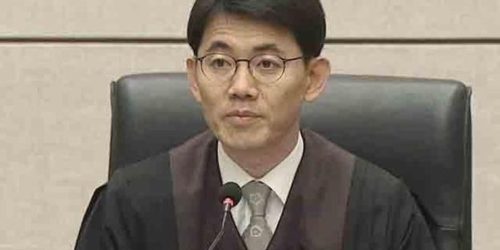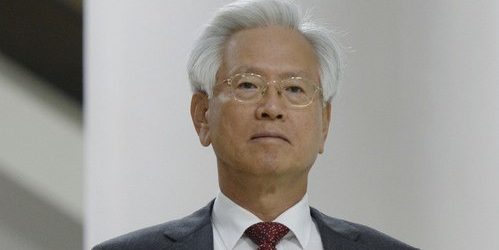Colonel Lee Jong-myeong, a South Korean National Hero, Being Expelled from His Own Political Party for Not Remaining Silent about 5.18 Gwangju Incident
2019-2-24, Tara O
The Central Ethics Committee of South Korea’s main opposition party, the Liberty Korea Party, decided to expel National Assemblyman Lee Jong-myeong (이종명) on February 14, 2019, because he sponsored a public discussion hearing on February 8, 2019 about what Koreans call “5.18” or the Gwangju Incident that began on May 18,1980, and spoke about it at the hearing.
5.18 or the Gwangju Incident has been known by many names–Gwangju Rebellion, Gwangju Riot, Kim Dae-jung Rebellion, Gwangju Democracy Movement, etc. As the changing names imply, it is a controversial issue and the narrative has been changing. Currently, it is widely known as a democracy movement, but Truth Forum, student organizations in over 70 universities in South Korea, warns:
The international community should see clearly…what South Korea’s ‘democracy movement’ of the 1980s was really about…the democratic movement of the 1980s in South Korea should not be praised uncritically because the movement at its core had North Korea’s Kim Il Sung Juche ideology followers, who sought to subvert the liberal democratic system and the market economy of the Republic of Korea
About Colonel Lee Jeong-myeong, DMZ Mine, and Losing Both Legs
Lee Jong-myeong is a retired Republic of Korea (ROK) Army colonel. He lost both legs to mines at the demilitarized zone (DMZ) while rescuing fellow soldiers. On June 7, 2000, he was a battalion commander at a unit in DMZ, conducting a reconnaissance patrol in the wooded area with his replacement, Lieutenant Colonel Seol Dong-seob (설동섭) and the soldiers of his unit. During the patrol, which was part of mission hand over, Seol and one of Lee’s company commanders stepped on mines. Seol lost both of his legs in an instant, while the company commander suffered a penetrating wound. Then Lieutenant Colonel Lee told the other soldiers to “stay back, as it is too dangerous.” He said he would go rescue the two injured men as the area was full of mines and that he knew the area well. As he tried to carry the company commander, another mine went off below his feet and Lee also lost both legs.
When Colonel Lee fell to the ground, he saw soldiers running towards him. He told them to stop right away, as it was dangerous for them, then he secured his rifle and crawled about 15-20 meters, choosing rocks and grassy areas, until he was out of the mine zone. (5:40) He told the soldiers to retrace where he crawled to rescue the other two soldiers, as that route was clear of mines.
He had already worked in the DMZ area longer than normal, 40 months rather than the normal 33 months. Prior to the event, Lee’s soldiers had marked the mines in known locations. It rained the night before the patrol, and the mines could have shifted, but it was unusual for the mines to move such a distance. When asked whether North Koreans may have placed the mines, Lee said “it cannot be ruled out.”
Colonel Lee said he could live without shame because he, and not his soldiers, was the one who was injured.
As a result of his heroism, the military was grateful for his sacrifice and dedication and changed the regulations, so that the injured could stay and continue to serve. After his treatment, he went on to teach at the Republic of Korea Joint Forces Military University, where he inspired a new generation of officers in leadership, duty to country, people, and the armed forces. (3:30) He served 37 years before he retired. (0:13) His fellow officers call him a “soldier’s soldier.”
In 2016, he became a proportional representative of the Saenuri Party, predecessor to the Liberty Korea Party, where he has served ever since.
What did Lee say? Were they really “Ludicrous Statements?” Did it warrant expulsion?
To take such an extreme measure as expelling a National Assemblyman, one may wonder if Assemblyman Lee did something gravely wrong or illegal. However, that was not the case
National Assemblyman Lee Jong-myeong, along with National Assemblyman Kim Jin-tae (김진태), sponsored a public discussion hearing about 5.18 on February 8, 2019. Assemblyman Kim Jin-tae was not present. National Assemblyman Lee Jong-myong and National Assemblywoman Kim Soon-rye (김순례) spoke at the hearing.
About 1,500 people attended the hearing. The “5.18 Meritorious Persons” (Yugongja) family groups physically fought to block one of the speakers, Dr. Ji Man-won, from entering the hearing. Subsequently, the police had to be called in. Dr. Ji, who has been researching the Gwangju incident for decades using extensive court and investigative documents, has maintained that North Korean special operations forces were involved in the Gwangju incident. The topic of whether or not North Korean special forces were involved at Gwangju is one of the topics that the parties in the National Assembly last year had agreed to investigate. However, whenever this issue has been raised for discussion, it has been strongly opposed by the 5.18 groups and their supporters.
Lee Jong-myeong said at the public hearing on February 8, “After 5.18 incident occurred, it was termed the ‘5.18 Riot,’ but as time went on, it was changed to the ‘Democracy Movement’…not based on scientific facts, but because political powers used it for political and ideological purposes and changed the ‘riot’ to a ‘democracy movement.’”
Regarding the issue of whether or not North Korean special forces were involved, Lee said “In May 1980, hundreds of people were photographed in front of the South Jeolla Province government building, but no one came forward and said ‘that person was me, not a North Korean.’”
Early last year, the Deobureo Minju Party accepted the proposal to investigate “whether or not North Korean forces intervened and whether or not North Korean forces infiltrated” as part of the “Special Law on 5.18 Democracy Movement Truth Investigation.” The Deobureo Minju Party initially wanted to investigate only the issues they claimed occurred. One of these issues was whether there was an order to fire at crowds from a helicopter. In order to pass a law to reexamine their issues, they accepted investigating North Korean involvement as suggested by the Liberty Korea Party.
Criticisms about the Statements by Lee Jong-myeong, Kim Jin-tae, and Kim Soon-rye
The 5.18 groups, the ruling Deobureo Minju Party and other parties, the Prime Minister, the president, and some major media criticized Kim Jin-tae and Lee Jong-myeong for sponsoring the hearing. They accused them of making remarks that “disparage and devastate the 5.18 democracy movement.” The press, including Hankyureh and others also joined criticism.
After Lee Jong-myeong’s statement on February 8, 2019 and his sponsoring of the public hearing, Deobureo Minju Party and other parties condemned the hearing and demanded that Liberty Korea Party expel representatives Lee Jong-myeong, Kim Jin-tae, and Kim Soon-rye, accusing them of making “ludicrous statements.” They also demanded the Liberty Korea Party apologize for what the Deobureo Minju Party calls “anti-history, anti-democracy ludicrous statements.”
Prime Minister Lee Nak-yeon stated on February 14 that “denying [5.18] is denying the National Assembly itself.” Prime Minister Lee, the former governor of South Jeolla Province, had ties to former president Kim Dae-jung and was a spokesman for former president Roh Moo-hyun. Prime Minister Lee Nak-yeon also said at a commemoration “The Moon administration must reinforce democracy in all areas at all costs…as justice eventually wins in history, so will the Gwangju spirit be victorious in the end. I have promised that the sacrifices of Gwangju will not be in vain,” as he cried reading the commemorative address.” (7:01)
Although the demand by the other parties to expel Liberty Korea Party’s own national assembly representatives seems far fetched, strangely, Kim Byung-joon (김병준), the Emergency Countermeasures Committee Chairman for the Liberty Korea Party (who is not a national assemblyman, was brought in from outside the party, and serves as the de facto party leader in the absence of a party leader) requested Liberty Korea Party’s Central Ethics Committee punish the three representatives for sponsoring the hearing or making “strong statements.” On February 14, the committee quickly decided to punish the three representatives. Kim Jin-tae and Kim Soon-rye registered to run for party leadership (vote to be held on February 27, 2019), so the party delayed the punishment decision since the rules did not allow for expelling them while they are running for leadership. The ethics committee, as well as the Emergency Countermeasures Committee, did decide to expel Lee Jong-myeong. Thus, the main opposition party leadership succumbed to the pressure of the members of the ruling and minor parties as well as the media, which has been supportive of the Moon administration and Moon’s party. The expulsion process is not complete, as it will require a 2/3 majority vote within the party.
Lee Jong-myeong emphasizes the need for investigation to restore honor
On February 12, Lee Jong-myeong apologized, stating “As a host, we are very sorry for those who have been hurt.” He continued “however, it is the basic duty of a national assembly representative to investigate and collect various inputs on whether or not North Korean forces intervened or North Korean forces infiltrated, which is within the scope of the ‘5.18 Truth Investigation Law’ passed with the agreement of the ruling and opposition parties. Further, he stated:
If the investigation on the two major issues related to 5.18–the intervention of the North Korean forces and the North Korean forces infiltration–can be conducted in a verifiable and acceptable manner and not an ideological dispute, and if the 5.18 Yugongja list is disclosed, I will step down on my own volition, sparing the need to go through the punishment/expulsion process.
If the issues of the North Korean forces intervention and North Korean forces infiltration can be investigated and unambiguous results can be revealed, so that the honor is restored for the Gwangju citizens who were actually victimized by the democracy movement, and the honor is restored for the South Korean troops who sacrificed themselves while being faithful to their mission, then we can end the discord and divisiveness, and pass on a proud Republic of Korea to the next generation.
Freedom of Speech and 5.18 Gwangju Incident Are Not Compatible?
Smaller media outlets and YouTubers have criticized the leadership of the Liberty Korea Party for quickly and subserviently meeting the demands of the other parties, raising the issue of freedom of speech and the need for public discussions.
For instance, Seong Jae-joon (성재준), a young YouTuber, retorted to the Prime Minister Lee Nak-yeon’s statement about “reinforcing democracy in all areas at all costs” and “the Gwangju spirit will be victorious in the end.”
Seong asked,
What is democracy? If one says something different about 5.18, then must there be threats, pressure, and lies to expel lawmakers from a party? Is that the basis for democracy? Democracy can’t exist without the freedom of speech and the rule of law.
(8:10)
I emphasize again, 5.18 is not sacred to the point that no one can say anything about it. Of course we should all have the freedom to discuss it.
(8:19)
Regarding Lee Nak-yeon’s statement about “Denying 5.18 is denying the National Assembly itself,” Seong asks,
What is the National Assembly? It’s where those elected by the people make laws. So why…is stating an opinion on 5.18 considered denying the National Assembly? Is 5.18 above the National Assembly? Is 5.18 above the constitution? Above the people? Who are citizens? What are citizens?…Are only the people with the same opinion about 5.18 ‘citizens?’ Are people with different opinions not ‘citizens?’
(6:05)
To Seong and the public, the statements treating 5.18 as sacred and above the law do not make sense.
7 years jail for discussing facts about 5.18 that do not fit the current narrative?
It appears the 5.18 issue is indeed sacred to some groups, including president Moon Jae-in. On February 19, 2019, the president said the statements by Lee Jong-myeong and others “deny our democratization history and constitutional spirit, and ultimately destroy democracy and the foundations of the nation.” He did not elaborate how having the freedom to discuss an issue “destroys democracy and the foundation of the nation.” In fact, Moon has had strong feelings about 5.18 in the past. Candidate Moon Jae-in, on April 18, 2017, just before the presidential election stated “I will not forgive any talk or any acts that insult the 5.18 democracy struggle; I’ll designate them by rule as ‘the enemy of democracy’ and prohibit them by law.” (1:41) During his presidential campaign and at 5.18 commemoration events, Moon also urged the crowd to sing “March For My Beloved,” the 5.18 song. He even tried to add the “5.18 [Gwangju] Revolution Spirit” in the constitution in early 2018; the constitutional “reform” efforts, in which he also wanted to delete “freedom” from the constitution, failed at that time
On February 13, 2019, the Deobureo Minju Party introduced an amendment to delete the portion of the law about investigating North Korean forces involvement in the “5.18 Special Investigation Law.”
The Deobureo Minju Party also adopted the “Distortion of 5.18 Special Law Amendment,” proposed by National Assemblyman Park Kwang-on (박광온) in August 2018, as the party platform. The initiative imposes penalties of up to seven years or a ₩70,000,000 ($62,000) fine on:
- “a person who distorts, falsifies, and spreads false propaganda through newspapers, magazines, broadcasts, publications, concerts, exhibitions, documents, pictures/paintings, etc.”
- “those who insult or slander organizations related to the 5.18 democracy movement”
What is considered “distortion, falsification, or propaganda” was not discussed, but it seems to include questioning about North Korean involvement, releasing of the names of the 5.18 Yugongja or anything that questions the current narrative on 5.18. It also severely restricts freedom of speech and the press
Park’s initiative also includes a provision to “enable the nation to remember the May 18 democracy movement by making it core to history education and human rights education.”
On February 12, 2019, National Assemblyman Park Kwang-on submitted 12 YouTube channels and 64 YouTube videos to the Korea Communications Commission for “review” for disseminating “false” information about 5.18. Park also asked Google Korea to delete 104 YouTube videos on October 15, 2018, dubbing them as “fake news.” Google refused to delete the videos after a review, because they did not violate Google policy. Park then said Google Korea could be subjected to punishment and summoned Google Korea to the National Assembly for “tax evasion.” For more on this and the suppression of the freedom of press on YouTube, see here
5.18 Meritorious Persons (Yugongja) and Benefits
One of the items that representatives Lee Jong-myeong, Kim Jin-tae, and Kim Sun-rye asked is to reveal the 5.18 Yugongja list. This demand is also echoed by the public. Unlike Korean War veterans and other Independence Meritorious Persons, whose names are released by the Ministry of Patriots and Veterans, the 5.18 Yugongja list is not. Given the generous benefits, often for generations, which include lump sums, monthly payments, and lifestyle assistance, people are demanding to know who the recipients are and how they are selected to receive benefits at the taxpayers’ expense. The chart below shows only a portion of the benefits, but the benefits difference between the 5.18 Yugongja and the war veterans are stark and unfair. For details on the extensive benefits for 5.18 Yugongja, see here.
It turns out politicians are among the recipients of the 5.18 Yugongja benefits, which include ones who were not even present in Gwangju at that time. Lee Hae-chan (이해찬), the leader of Deobureo Minju Party already admitted publicly that although he was not at Gwangju, he was designated as a “5.18 Yugongja.” (0:30) He also stated that the Deobureo Minju Party National Assemblymen Sul Hoon (설훈) and Min Byung-doo (민병두), neither of whom were in Gwangju, have also been designated as “5.18 Yugongja.”
The names of some of the 5.18 Yugongja are inscribed on a wall at the 5.18 Memorial Park in Gwangju built in 1999. Instead of the list growing shorter as people pass away, more people are designated as the 5.18 Yugongja as years pass, and the new additions are not likely reflected on this wall
In this photo, there is a familiar name: Moon Jae-in (문재인, middle right column, 6th row from the top). It is unclear whether the “Moon Jae-in” inscribed here refers to president Moon Jae-in, who also was not at Gwangju at that time.
Additionally, another name inscribed is Moon Ik-hwan (문익환, middle right column, second row from the top). Moon Ik-hwan is the name of a pro-North Korea activist, clergy, and poet, who secretly visited North Korea and met with Kim Il-sung in 1989. (0:02) See here for a video of Moon Ik-hwan hugging Kim Il-sung. In the 1980-90s, Moon Ik-hwan was looked upon as “the spiritual guide” and a key leader by the Jusapa activists, including:
- Im Jong-seok, the former leader of a pro-North Korea student organization Jeondaehyeop (전대협), was the former Chief of Staff of Moon Jae-in, and is the current Special Envoy to the UAE, and
- Lim Su-kyung (임수경), the student activist who secretly went to North Korea and met with Kim Il-sung and attended the World Festival of Youth and Students in 1989. (1:29)
For more on Im Jong-seok, Jusapa, and Lim Su-kyung, see here.
Also inscribed on the wall are Lee Hae-chan, who already admitted he received 5.18 Yugongja status, and Kim Byung-joon (김병준). The latter name is the same namesake as Kim Byung-joon, who, as mentioned earlier, is the Emergency Countermeasure Committee Chairman for the Liberty Korea Party, who quickly asked the party’s Central Ethics Committee to punish the three representatives–Lee Jong-myeong, Kim Jin-tae, and Kim Soon-rye–of the Liberty Korea Party for speaking on the 5.18 issue. Kim Byung-joon worked on Rho Moo-hyun’s presidential campaign as the chief policy adviser and followed Rho to the Blue House as a Senior Secretary for Policy. Kim Byung-joon was a member of the Deobureo Minju Party until he was asked by the Liberty Korea Party leadership, headed by Kim Seong-tae (김성태), to replace Kim Seong-tae as the Chairman of the Emergency Countermeasures Committee. This is like the Republican Party asking a democrat to lead the Republican Party, or vice versa.
Other than Lee Hae-chan, the other names may not necessarily be the same people as the president and politicians of various parties. However, it does raise questions, and the public wants to know who exactly is designated as a 5.18 Yugongja and how they received the designation.
Summary and Question
The 5.18 Gwangju incident is one of the most controversial issues in South Korean history. Having an open discussion, therefore, would be helpful. But any attempt to do so is met with fierce resistance to the point a major political party, at the behest of other parties, quickly began the expulsion process of its own lawmakers for making inquiries or statements. The ruling party, the Deobureo Minju Party, even made silencing and punishing those who raise questions about 5.18 central to their party platform, and is swiftly moving to use the law, education, and other apparatus to enforce their will. Freedom of speech and freedom of the press are key pillars of a liberal democracy. If the “5.18 Democracy Movement” does not support the central pillars of liberal democracy, then what kind of democracy was 5.18 Gwangju incident about?
